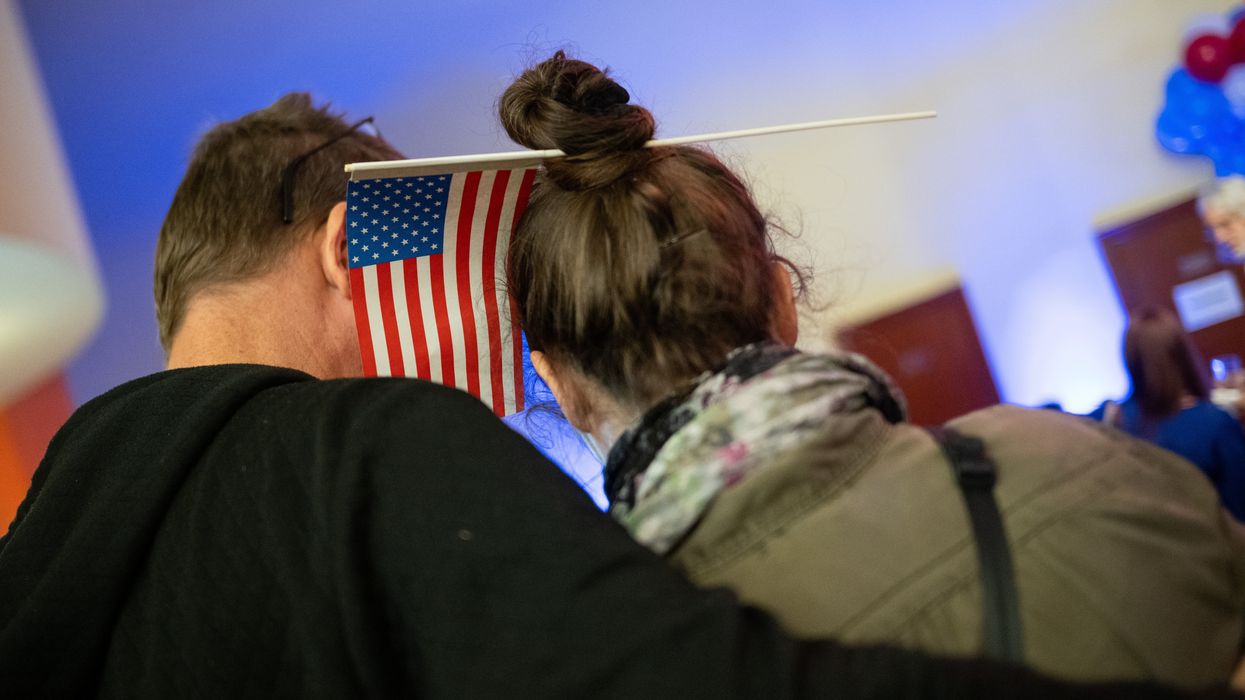Molineaux is the lead catalyst for American Future, a research project that discovers what Americans prefer for their personal future lives. The research informs community planners with grassroots community preferences. Previously, Molineaux was the president/CEO of The Bridge Alliance.
Much of Nov. 6 was spent talking with friends and family who were alternately angry, sad and disappointed or relieved and hopeful with the results.
“How can people be so dumb?” one friend asked. A different friend noted, “She didn’t have a plan she could articulate.” One couple was researching how to move to another country. Other friends cried for marginalized groups that were targeted in the campaign.
Friends in these marginalized groups haven’t been in touch, but I plan to reach out today. I’ve seen several Facebook notices that people are taking a break, taking time to recover their sense of purpose and power. I personally haven’t turned on any news and will likely wait a few more days. I’m remaining engaged with my community.
I know we are, and will be, OK. I don’t know how to help others feel this too.
Anytime we have a contest with a win/lose dynamic, there is a period of healing needed. After the World Series, the Super Bowl or the Stanley Cup finals, the losing team needs time to accept the loss and make a plan. The winning team needs to celebrate, of course. In sports, these wins and losses don’t set the direction for society as a whole. Elections do. We may need more time to heal.
When I was new to politics — beyond voting — an elder in my community shared an analogy with me. The images were so clear that it touched my heart and set me on the path to understanding my fellow citizens. Here’s the paraphrased analogy:
Every four years, we have a contest about the future of our nation. Each party picks a champion to represent them — a fighter to represent their future interests and priorities. These fighters enter the battlefield, beating and bloodying each other, damaging their bodies, their hearts and their very souls to win. They don’t want to let their party group down. We, the citizens, witness the battle and watch helplessly as our fighter is battered and bloodied. We feel anger, fear, despair and other stress-related emotions. No matter who wins the election, we end up with a pair of broken fighters, one of whom is granted power to effect change. We, the citizens, in witnessing the indignity of the fight itself, are also damaged. There is no honor in this fight, only winning. This is the essence of our election process. And it’s killing our trust and respect for each other, as the only way to gain power to effect change is through this flawed system we call democracy. There has to be a better way.
As I took in this story over 20 years ago, I marveled that our nation had survived. “A republic, if we can keep it,” as Ben Franklin noted. Our survival instincts impose and accept indignity that shrivels our hearts. In that moment, I took a vow to change the system, so we might be whole.
We are in the midst of a society-wide transformation, as our elders have experienced before. The last time our social contract was updated was following World War II, and it no longer serves the majority of Americans. Or the world, for that matter. So what would we like to include in a new social contract?
The Republicans have won the presidency, the Senate and likely the House. The public has spoken and the will of the people is being heard. What do we want for our future? That is an exploration for us all. Too many of my progressive friends have no conservative friends. Many of my conservative friends will share their thoughts with me, but disengage if I disagree. On Election Day, I registered many young men of color as Republicans. My curiosity is piqued, wondering, “What am I missing?”
A few months back, I changed my party registration to Republican. In my heart, I have been a life-long unaffiliated voter, with both libertarian and progressive leanings, who has strategically been a Republican or Democrat to vote in closed primaries. Most recently, I changed it so I could be a Republican chief election judge. As the election results settle in and I talk with friends and family, I’ve decided to stay registered as a Republican.
Too many of us have dismissed, condescended and ostracized those different from ourselves. We judge first and belittle later. I’m rejecting what has been — that vision of two bloody and battered fighters — to find a new path, beginning with my fellow conservative Americans. I’m returning to my roots to learn and grow, providing attentiveness to the pain and preferred future goals that make up the majority of American voters.
What is needed is for us to visit the other side of the bridge — not meet in the middle and return to our own comfortable side of the bridge. Our nation needs us to deeply understand each other and be neighborly. To figure out how to make decisions for our future, together. How to build skills so we can disagree, negotiate and compromise, then live with the results. Our future is dependent upon our courage to visit the other side of the bridge and dwell there for a while.
Is our country worth this effort? It’s our choice.




















Trump & Hegseth gave Mark Kelly a huge 2028 gift